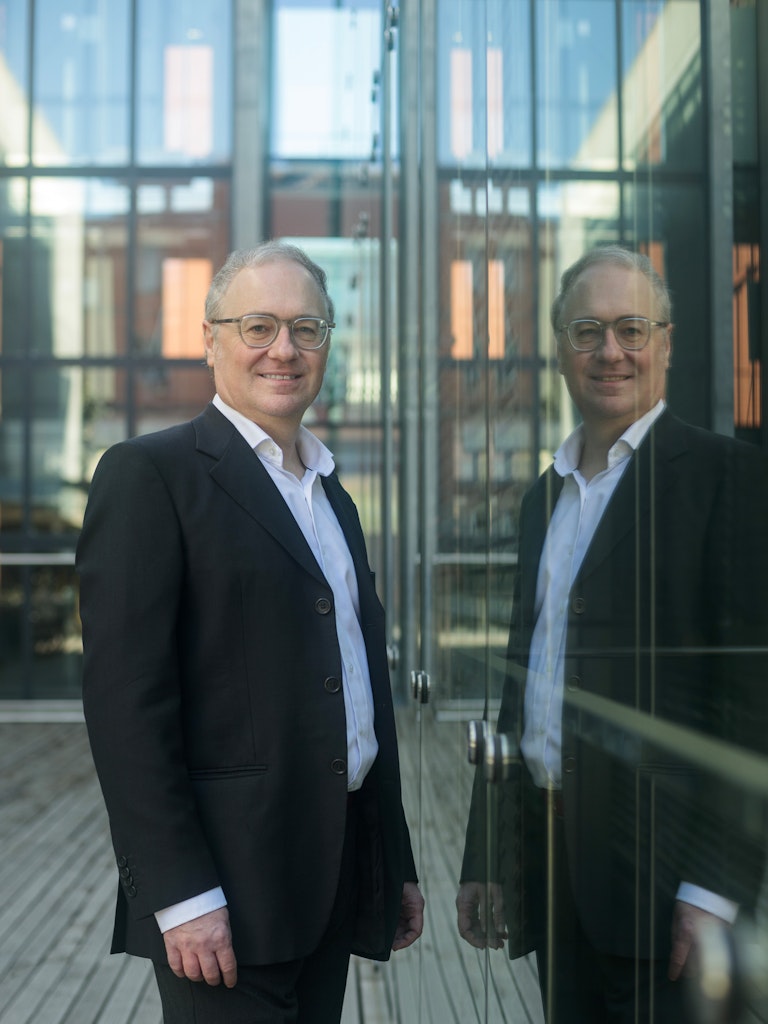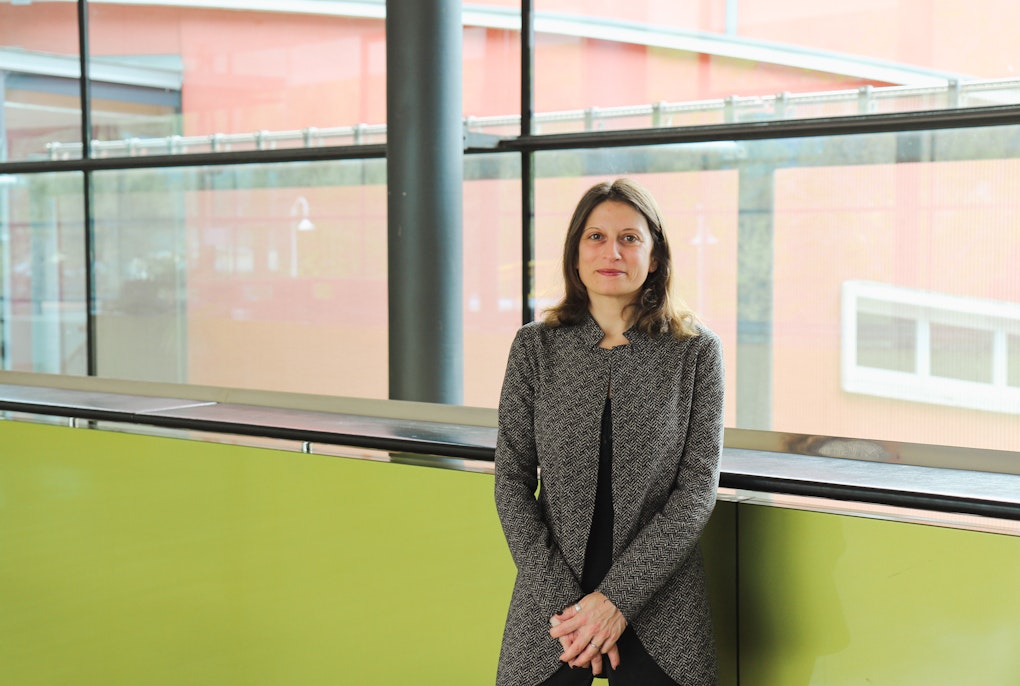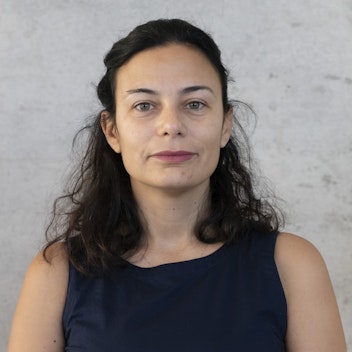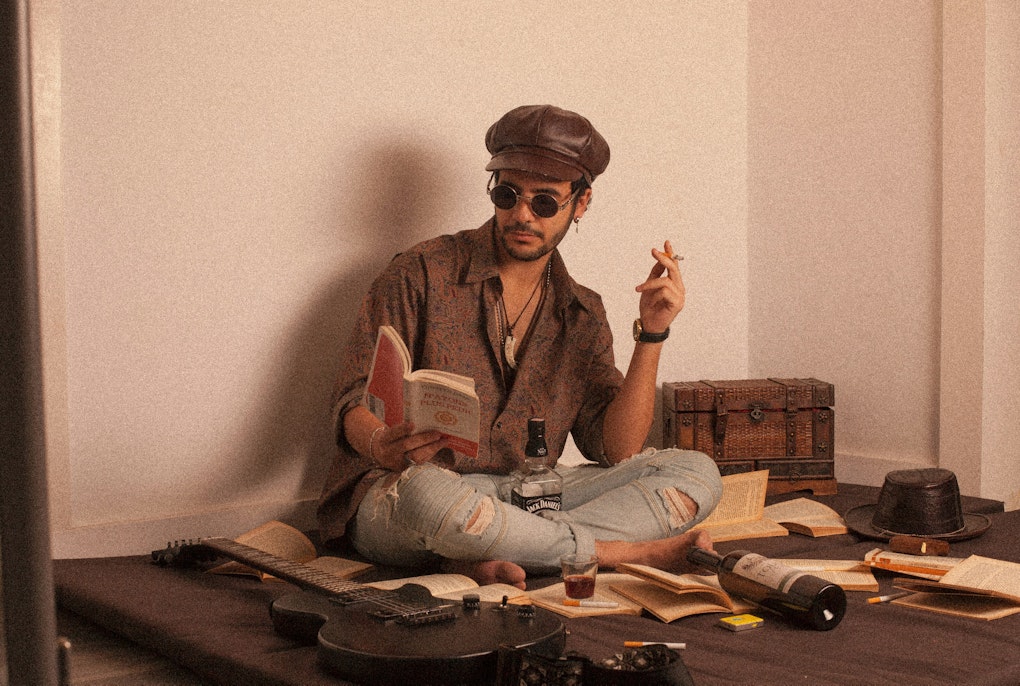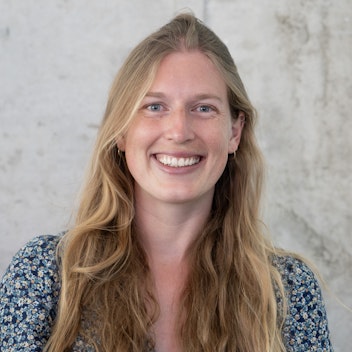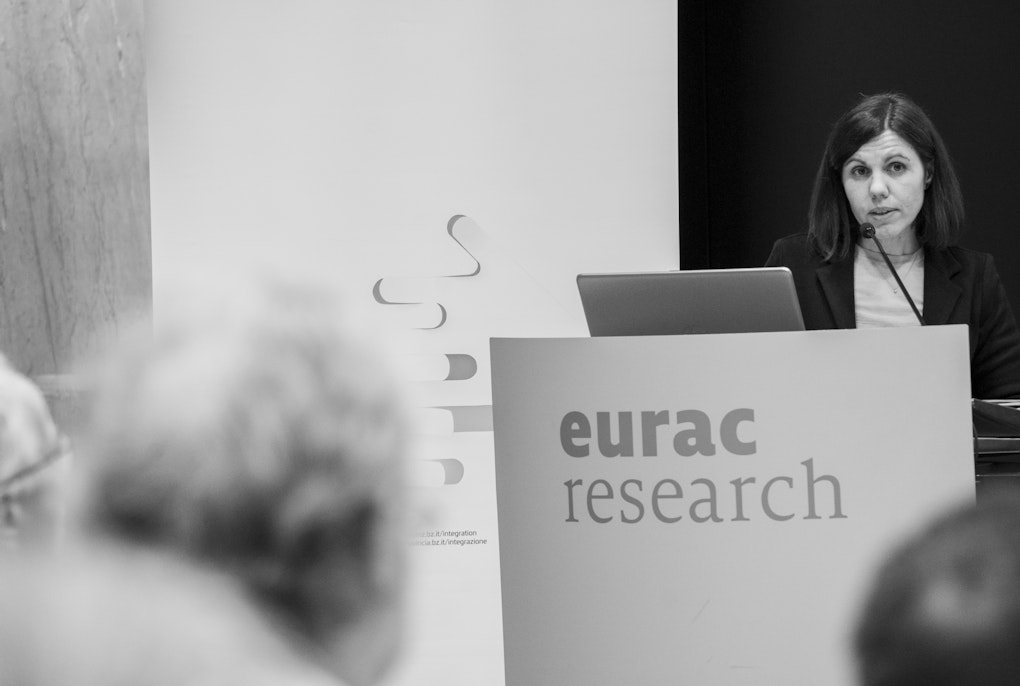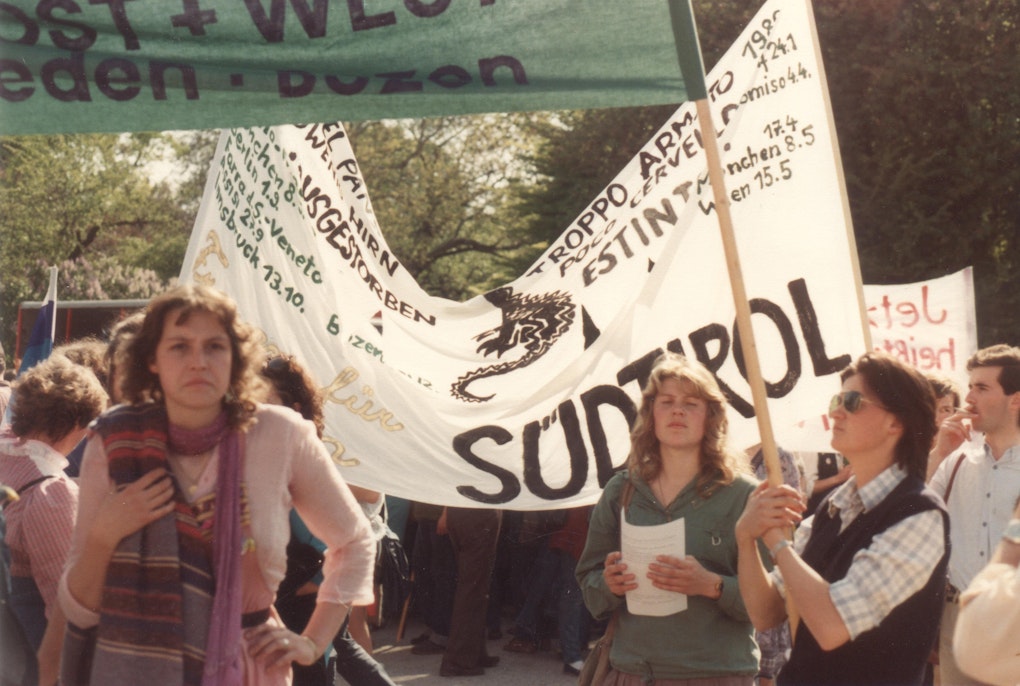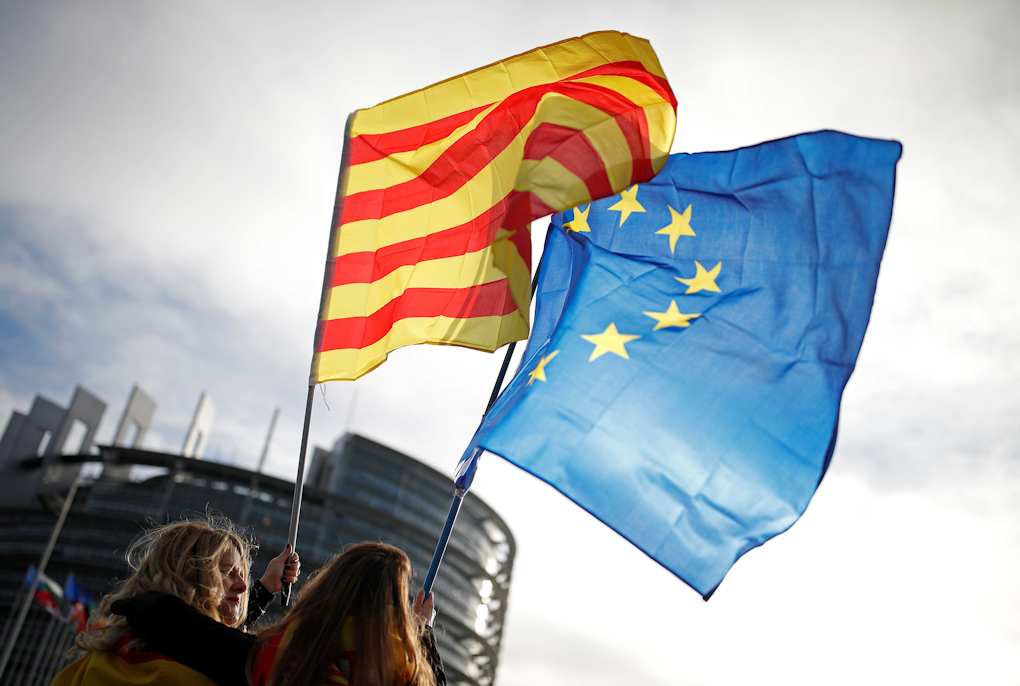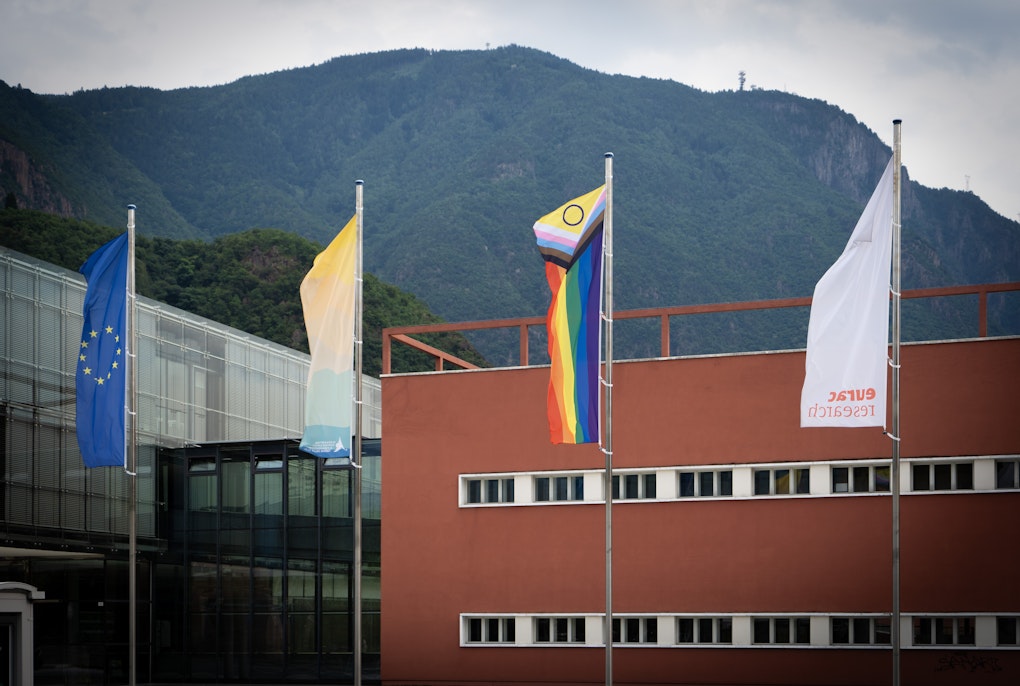magazine_ Interview
"Shaping the future must be a social movement."
An interview with Roland Benedikter, holder of the UNESCO Chair in "Interdisciplinary Anticipation and Global-Local Transformation" at Eurac Research.
Thinking of the future in personal terms has limits. As communities, we could imagine many more futures and thus, be more inclined to shape them. Through "futures education," UNESCO plans to advance anticipating and forming futures as a cooperative endeavor. We spoke with Roland Benedikter - the newly established UNESCO Chair in "Interdisciplinary Anticipation and Global-Local Transformation" at the Center for Advanced Studies of Eurac Research. Here he explains why we must consider the future as a skill - and how the will to participate should be encouraged to germinate in South Tyrol.
In its “inclusive futures education” program, UNESCO uses the term "working with futures." This is not easy to understand. What does future in the plural mean?
Roland Benedikter: The starting point of it all is a basic anthropological insight: humans are constantly concerned with what comes next. We live day by day mainly in the future with regard to what worries or frightens us and in what we hope for. That's ultimately what our whole life revolves around. One consequence of this is that we are constantly planning, i. e. considering the next steps, both in the short and medium term by extrapolating our expectations into the immediate future. There are others though who think longer-term. They look ahead and develop veritable scenarios: where do I see myself in ten years, where do I see society in fifteen? We call this foresight. Although these cases are more rare and more sophisticated than simple planning, here, too, we extrapolate what we already know into the future. To this planning and looking ahead, UNESCO has added a third aspect, anticipation. Here, the future is not understood as a scenario or place we will eventually reach, but as a personal human skill. UNESCO is convinced that we can refine this skill by developing individual capacities to better deal with the future - just as we learn to read and write, and afterwards constantly refine these faculties. That's why UNESCO talks about “futures literacy” – to become more literate in one own’s “use” of the future. The great insight though is that in the end, “using the future” is not a solipsistic but a collective project which needs a community of people because future awareness increases much faster in community processes. Every person is equal in these processes, since everyone has their own personal future, just as they have their own dignity and inviolability. Future is both something very personal and very collective. At the end of the day, when we speak of futures there are as many futures as there are people. Together they make up the futures of society.
"The problem is that we only ever fall back on what we already know, fear or hope for."
Roland Benedikter
The motto of UNESCO future education is "overcoming the poverty of imagination". Are we too unimaginative when it comes to the future?
Benedikter: The problem is that we in most cases use to fall back on what we already know, fear or hope for. We then project this into a possible future - which then usually turns out differently to our preconceived notions. This is what UNESCO means when it states that there is a worldwide lack of imagination about what futures can actually be - and what they can bring about in the present, long before they occur.
How can this be remedied?
Benedikter: The first step to increasing richness of imagination is dialogue, exchange. We people always see only what is already inside us. But what we learn from others overturns many things and can open up a completely different level. For example, a few months ago we had a UNESCO future conference which took place online due to the pandemic. There, as a white man from South Tyrol, I was directly connected with a black chief in the middle of the African bush sitting in front of in his hut, a Chilean who was panicking in his super-modern high-rise building in Santiago because the earth was quaking at the time of the call, and with an American on Wall Street who had a completely different understanding of a good life, wealth, money and the future than the average European. One might ask: how are we supposed to agree on a single common future here? Common sense says: it's not possible. These are completely different life worlds and experiences, horizons and preconceptions, culturally and psychologically, philosophically and spiritually. Yet the crucial, the human, well takes place between the different. That's why we don't really need "future education", but "futures education". The plural is precisely this spirit of UNESCO, of which a true humanism emerges. It is a subject which can inspire us, and which is also at stake in our time. You can talk about it; but it is a different thing if you experience it. What is needed is the willingness to encounter and engage in a deeper dimension with the other.
How does UNESCO give us all the opportunity to experience this?
Benedikter: UNESCO has developed a patented format for this purpose: the Futures Literacy Laboratories, or FLL. People come together and talk about their ideas, their fears, expectations and hopes in structured processes - and also by means of various games. In most cases, the result is that people's individual ideas about the future are enriched by many aspects that they had not previously considered. The next step is to question one's own images of the future, and then perhaps even to reshape them and develop new ones. These new images are usually not completely different, but rather further developments of the ones you already had.
Have you experienced this yourself - that perspectives change in future dialogues?
Benedikter: I am like most people: tending at first to think, "I don't need this. I already know everything anyway, I own my own future, and that’s enough". But after a while, I noticed that my perceptions really changed. This is not necessarily always pleasant, but the important thing is to listen, to play it out inwardly, get angry about some things, and then to forget about them. Then the whole process continues to work in the subconscious. And when you come together again after a certain time, you realize what has happened. You change, you become richer. But the whole thing only works if you do it again and again, in cycles. We would say that ideally everyone should take part in a future laboratory once a year - then it will have an effect on them and their common future.
"Through future education, UNESCO aims to make societies more energized, ready for change, and more participatory."
Roland Benedikter
Has this effect been proven?
Benedikter: Actually, sometimes the verdict of some critics has been that it didn't bring anything - at least nothing practical or useful. You do two days of future laboratories, where people talk and make drawings all the time, and then they go home and fall back into their patterns. But there are now empirical studies from South Africa and the Scandinavian countries that have demonstrated significant effects. People who have repeatedly participated in such laboratories are fundamentally more positive, accepting of crises, open to transformation processes, more resilient, and above all: they are more participative and active in wanting to help shape things. This is precisely UNESCO's goal: the future should not be shaped by elites alone; it should be a social movement. That's why UNESCO's future education and dialogue program aims to make societies more inspired and energetic, willing to change and be participatory. In my eyes, this is also an important point for the territory of South Tyrol in which we live today.
The participation moment?
Benedikter: Yes. After all, we must consider ourselves lucky to live in such a region where we are now in a very exciting phase of development. We want to move from a culture of voting to a genuine culture of participation - among other things as part of South Tyrol’s sustainability strategy. Sustainability depends on people's participation. You can't mandate it, that’s difficult. Daily we are all already overwhelmed with complexity. Participatory culture means that people want to shape things themselves - and not because they are told to take part! That doesn't work. People have to feel the joy of it themselves and have the energy for it. In South Tyrol, people are generally very positive and eager to work, which is why we are doing so well. We are less used to questioning possible futures or necessarily doing something about them together with others. Future education can get people to open up to shared futures instead of keeping them to themselves. This often leads to something deeply unifying. A process could begin, for example, with the mutual question, "What am I afraid of?" At first you probably get standard answers - illness, death of parents, catastrophes. But when you ask each other more questions, irrational layers often emerge - you discover where your fears actually come from. Likewise with the question: "What do I hope for?" After all, the hopes that people share often do not correspond at all to what they really hope for. And there, of course, not only are the abysses in the human soul revealed, but also quite beautiful things that would otherwise remain hidden. And for all this you need the other person; you can't do it alone. It is, in its very basics, about the inclusion of the other in the work with futures, from which a commonality can then arise. It has to do with feelings and with the human touch, all of which corresponds exactly to the pan-human spirit of UNESCO.
Just how feasible is it that everyone participates in a laboratory once a year?
Benedikter: It's certainly possible. Let's assume that a few days were set aside for this in each school year for every pupil and teacher - it's not such a huge time commitment. In Scandinavia, Great Britain and South Africa, future education has already been incorporated into various school curricula, including vocational training with very different approaches. It in principle can be introduced as a separate subject such as "future competence" or as a cross-sectional task within the individual subjects of learning. I would advocate a separate subject. For universities future preparedness and futures literacy should be a compulsory lecture, or a studium generale for all. Unfortunately, in Italy, the academic and school disciplines are very narrowly defined, so it's not easy to make futures dialogue a separate subject. That's why the idea was to offer future education at schools as a cross-sectional task: you train the teachers, and they pass it on to the students through their subjects. And perhaps you do it for different groups according to the desires of the sector.
What is planned in South Tyrol?
Benedikter: In addition to research and academic teaching we want to collaborate with schools and offer future laboratories to interested parties, and also start a future dialogue. The school leaderships are interested. In December we will start with a first introductory seminar for teaching and management staff.
Is there already a UNESCO chair on futures education in Italy?
There is. One of the most important internationally in fact who happens to be based in Trento. The position is held by the Sociologist and Philosopher Roberto Poli. It’s a stroke of luck for us. There is also a course of study there on "social foresight" - in other words, on anticipating future developments in society. This is the approach that we are also taking - understanding the future not as a mere business, but as a profound human skill that opens the path to the next stage of society. The collaboration is bound to be exciting!
Is a central component of future skills the ability to deal with uncertainty? Corona was one such case, where something occurred that no one had predicted.
Benedikter: Yes, that is a crucial point. Uncertainty reigns because the times have changed. The second half of the 20th century was a relatively stable one compared to today. There was a clear dichotomy between two blocs: communism and capitalism and each stabilized the other. In the 21st century, things have arranged themselves more confusingly. One systemic crisis follows another, starting with the attacks of September 11, in 2001. This opened the century and followed the financial and economic crisis, the debt crisis, the migration crisis, the European unification crisis, the populism crisis, the pandemic, the Ukraine war. Hardly any of the professional futurologists foresaw any of this. How is this possible? Why were we unprepared for the pandemic, why were we unprepared for the Ukraine war? Fact is, we were actually unprepared for most of the crises of our times. This has to do with what we in sociology call “the shrinking of the present". Everything is happening faster and faster. And that means that the future is becoming increasingly important and that we have to deal more and more with constantly emerging unknowns, which by their very nature simply cannot be planned directly. Dealing with them has to be conceived differently. It has to do with people's willingness to anticipate the future, and above all with making it usable in the present for a better life. Collective intelligence is a major theme here.
Meaning?
Benedikter: The rise of collective intelligence in our time is the human-level equivalent of the rise of artificial intelligence in technology. Collective intelligence means using precise methods, such as future dialogues or hackathons - i.e. joint problem-solving meetings on the Internet, - to call up interactive potential on a broad basis and thus accelerate processes that would not arise if only experts were involved. Such involvement is becoming increasingly important for the future management of hypermodern societies. People must be able to feel included in decision-making processes in real time in a kind of hive consciousness. They instinctively want that, otherwise they become restless, angry citizens, what in German we call “Wutbürger”. Just as a flying flock changes direction, the future has an effect in the present; democracy also moves in this direction to some extent. To manage this we must call on human potential, including community-building through dialogue, trust, openness and a willingness to participate - in other words, by the means of the core themes of UNESCO futures education.
Roland Benedikter
Roland Benedikter is a political scientist, sociologist and co-head of the Center for Advanced Studies at Eurac Research. He is also a research professor of Multidisciplinary Political Analysis in residence at the Willy Brandt Centre at Wroclaw University, Poland.
UNESCO Chair in Interdisciplinary Anticipation and Global-Local Transformation
UNESCO is the United Nation’s educational, cultural and scientific organization which encompasses almost all the world’s countries. To anchor UNESCO's goals in science and education, worldwide more than 900 dedicated UNESCO chairs cooperate, excelling in research and teaching within their local organizations. Eurac Research’s Roland Benedikter was recently awarded the UNESCO Chair in Interdisciplinary Anticipation and Global-Local Transformation, which includes both research and teaching activities and opens the autonomous province of South Tyrol to the worldwide network of UNESCO. On Monday, October 24, 2022, the new and first UNESCO Chair of South Tyrol was officially presented at the Bozen/Bolzano Research Center.
Sustainability 101: 18 open lectures
On October 26 at 6pm, Roland Benedikter will give an open lecture as part of the Series of Lectures on Sustainability at the Eurac Research headquarters. The theme of his lecture is "Climate Crisis and Artificial Intelligence (AI): salvation or waste?"
The lecture series is organized by the Alliance of Research and Education for Sustainability in South Tyrol. In the framework of the alliance, several South Tyrolean research institutes joined forces to address important aspects of sustainability and, above all, identify solutions to present and future challenges and issues. Those involved include the Free University of Bozen/Bolzano, Eurac Research, the Academic Theological Studio, the Laimburg Experimentation Center, the Natural Science Museum of South Tyrol, eco-research, the Ökoinstitut, and Fraunhofer Italy. IDM is also a partner. More information is available on the Alliance for Sustainability website.
